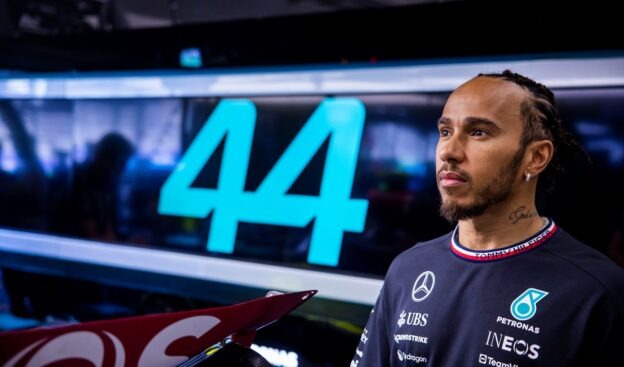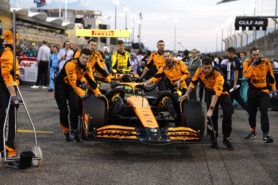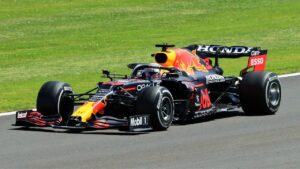What Does It Take To Stay At The Top In F1?

On Sunday, we will enjoy the 2024 Australian Grand Prix from Melbourne's Albert Park, the third round of the 2024 F1 World Championship. There is a chance that we will see a tremendous mix of consistency, talent, and having the right tools at all the right moments: Championship leader Max Verstappen is the utter favourite to win a 10th consecutive race, which would equal the biggest tally in F1 history, set by Red Bull's Dutchman right before the current streak began. If you enjoy betting live, do not miss the chances throughout the upcoming weekend, and try your luck during the main sessions.
Consistency represents a huge part of success in Formula 1, but finding the ideal collective situation at the right time is equally as important, if not more. Many of the greatest F1 drivers have been able to run into the perfect situations at the adequate moment of their respective careers. However, they also need to hold their end of the bargain with the tools at their disposal: technical ability, physical prowess, self-confidence, self-awareness, and many more.
It's always a two-part game, there's no success without a man behind the machine, and there's no dominant driver without the right car. However, the greatest F1 legends have often found a way to overcome less-than-ideal situations. By digging deep into their toolbox, legends like Juan Manuel Fangio, Jim Clark, Michael Schumacher, and Lewis Hamilton have been able to extract the maximum with seemingly unmatchable levels.
Here, we will see some of the secrets behind the success of these Formula 1 heroes and how they stayed at the top throughout their careers:
Fangio, on his side, won a record (until 2002) five Formula 1 titles in the 1950s with four different brands. How did he do it? The Argentinian legend was a master at work and quite advanced for his era. One of his best characteristics was his attention to mechanical details and his understanding of the cars' system. “I never considered the car to be a means for me to win. Instead, I always thought of myself as just a component of a car, a bit like a piston or a suspension rod...”, said Fangio.
Hamilton, who dominated Formula 1 since entering in 2007 and holds most of the biggest records so far, has not won a race since the 2021 Saudi Arabian Grand Prix. However, his methods of paying attention to the mental and physical side of the sport can't be doubted. "My mindset is greatly benefitted by meditation, so I try to prioritize it. I don’t always get to, and I can feel the difference, but the schedule can get very hectic. I always do better when I can put that focus into my mental game... Competing has become very serious business, and we work hard, perhaps too hard. There’s immense benefit to smiling to the body and mind. Exercise is also a great way to help me stay sharp, on top of being critical to succeeding in motorsports."
From Fangio to Hamilton, we can understand how the mind of an F1 hero works, even if the approach is different. After all, both hold records that might not be broken in the future, like Fangio winning 24 of his 51 Grand Prix starts —an untouchable 47% success rate—.
The rivalry between four-time champion Alain Prost and three-time champion Ayrton Senna stopped the world during the 1980s. Regardless of how different they approached a Formula 1 race, their preparation was similar. Prost, often overlooked in the F1 GOAT debate, was a cerebral driver who understood points were given out on Sunday and used his tool better than most during the Grand Prix. Meanwhile, Senna could tap into his talent and perform at unimaginable speeds with unique consistency more often than not.
Control against aggression. On the physical side, the pair proved that Formula 1 drivers were athletes. Right before Michael Schumacher took fitness preparation for a Formula 1 driver to another level, Prost and Senna were at the peak of physical prowess for a racing driver.
"I believe that the stress of a regular life, or even the life of a driver, who has to race in an environment full of competition and politics, can really compromise your health ten or twenty years down the line. But if you have an above-average physical condition, you’ll be able to better deal with that stress. You’ll improve your focus, reducing the risk of an accident or an injury. And your chances of winning also increase”, said Senna about his physical work with trainer Nuno Cobra.
Technical knowledge, physical conditions, mental preparation, strategic thinking, and many more characteristics have been part of the construct of a legendary racing driver. From Giuseppe Farina (F1's first-ever champion) to the most recent F1 World Champion, Max Verstappen, these traits have all been there in bigger or smaller amounts.
✅ Check out more posts with related topics:













LAST 3 F1 Fan COMMENTS